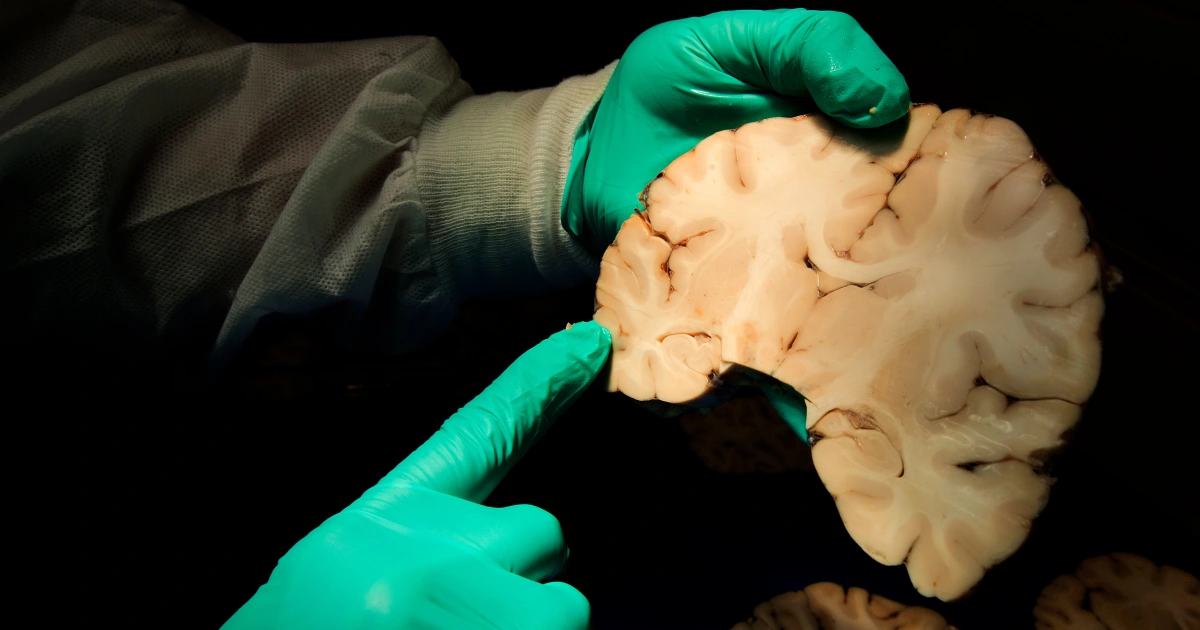The gunman who opened fire in midtown Manhattan on Monday, killing four people before turning the gun on himself, left a note mentioning “CTE” several times, officials familiar with the investigation told NBC News.
CTE, or chronic traumatic encephalopathy, is a brain condition caused by repeated injuries to the head, typically over many years.
The shooter was targeting the headquarters of the National Football League, which is in the Park Avenue building where the shooting took place, authorities said.
While CTE can’t be formally diagnosed without an autopsy, one third of former NFL players suspect they have the disease, according to a 2024 report. The NFL first acknowledged the link between CTE and football in 2016.
Former NFL player Phillip Adams was found to have severe CTE after he gunned down six people before taking his own life in South Carolina in 2021.
NBC News spoke with Dr. Aaron Lord, chief of neurology at NYU Langone who specializes in brain injuries, about how CTE changes the brain and a person’s behavior.
What is chronic traumatic encephalopathy?
First characterized in boxers, the condition used to be called “punch drunk syndrome” and can cause neurological conditions including early dementia, memory impairment, personality changes, and movement disorders similar to Parkinson’s disease, Lord said.
CTE can affect anyone who sustains repeated head injuries.
“It’s just about repetitive shock waves to the brain,” he said.
The condition’s link to suicide and suicidal ideation is an area of active study, in part because there seems to be a higher rate of CTE than expected among high-caliber athletes who have committed suicide, Lord said.
Still, experts haven’t drawn any conclusions about “the incidence and prevalence of this disease in the population, or in specific athletes,” he said.
“It’s a new one we’re still defining,” he said.
How is CTE diagnosed?
Without an autopsy, doctors can’t diagnose CTE, and even then it can be difficult to pinpoint because there’s no specific criteria to diagnose it, Lord said. An autopsy must reveal evidence of tissue degeneration and abnormal clumps of certain proteins around blood vessels in the brain.
Some patients and their doctors may speculate that they have the disease because of noticeable changes in their moods and behavior. Patients also know if they’ve suffered blows to the head, how many and how severe.
Lord said that a brain MRI on concerned patients might reveal some changes consistent with the disease, but it’s not enough for a diagnosis.
There is some overlap in symptoms with psychiatric disorders including major depressive disorder, schizophrenia and bipolar disorder, Lord said.
Lord has also seen a link between patients with CTE and homicidal ideation and impulsivity as well as other personality changes.
Lord tends to see the disease in older individuals, possibly because of earlier repeated impacts, but even one hit to the head can cause damage, even if that trauma doesn’t result in CTE.
“Even somebody who’s just been in a single car accident and has injured the frontal lobes of their brain can have permanent personality changes and impulse control and psychiatric changes,” he said.
Is there treatment for CTE?
Although there is no direct treatment for the disease, psychiatric medication can help with behavioral control and other symptoms, Lord said.
Not everyone who gets a concussion develops CTE, according to the Mayo clinic. Prevention is the best medicine: Avoiding head injury by using seatbelts or helmets can lower the risk of getting a CTE and other brain-injuries, Lord said.
